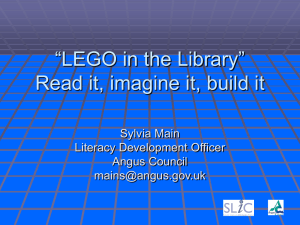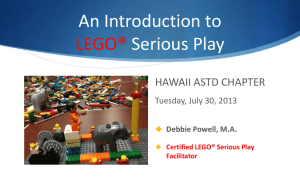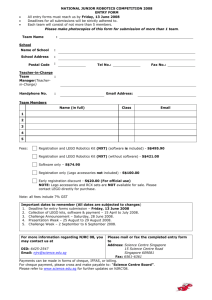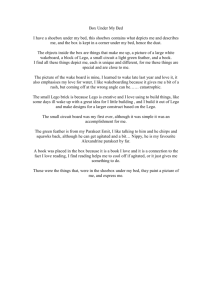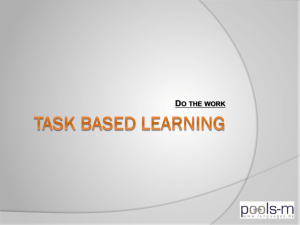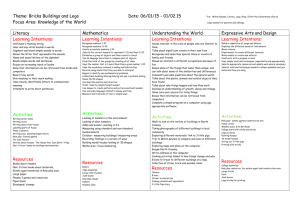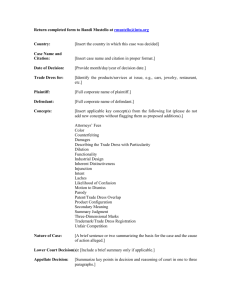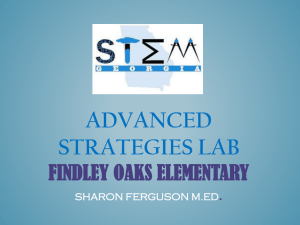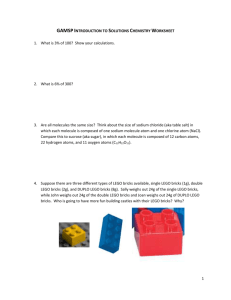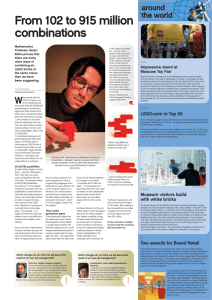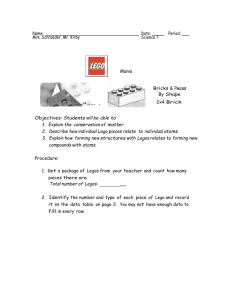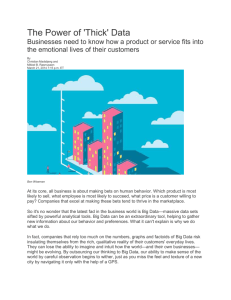Slides - 11th Active Learning in Engineering Education workshop
advertisement
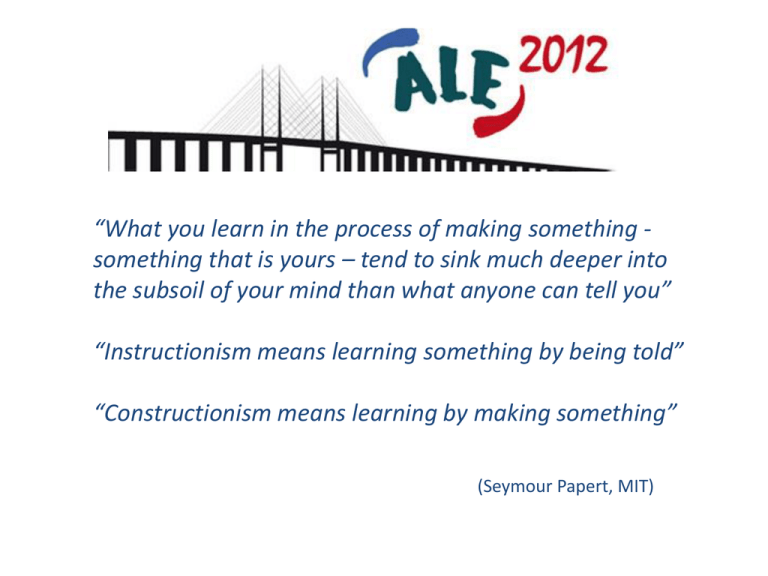
“What you learn in the process of making something something that is yours – tend to sink much deeper into the subsoil of your mind than what anyone can tell you” “Instructionism means learning something by being told” “Constructionism means learning by making something” (Seymour Papert, MIT) Leif Karlsen Jette Duus Robert Rasmussen The History of The Plan LEGO®SERIOUS®PLAY 15.30 – 15.40 Introduction 15.40 – 16.20 LEGO SERIOUS PLAY (LSP) 101 16.20 – 17.15 Using LSP to discuss “How do we foster autonomous active learning in engineering education” 17.15 – 17.30 Presentations and closing Force, gearing, speed, torque…….. by building models of the tangible world Synergy, communication, team work …. by building models of the intangible world Force, gearing, speed, torque…….. by building models of the tangible world Synergy, communication, team work …. by building models of the intangible world The LEGO SERIOUS PLAY method is a facilitated thinking, communication and problem solving technique for groups Traditional brain-storming and problem solving meetings! 20 - 80 A LEGO SERIOUS PLAY meeting 100% 100% 100% 100% 100 - 100 100% 100% 100% Lean backward meeting Lean forward meeting 20 – 80 100 - 100 • • • • • more participation more insights more ideas more ownership better decisions Optimizing our brain-power through the hand bone – mind bone connection The Whole Brain Advantage 1. Controls the right side of your body 1. Controls the left of your body 2. Works sequentially with one thing at a time 2. Works in parallel with multiple things at the same time 3. Specializes in text. The words – not the meaning 3. Specializes in the meaning of the word rather than the text itself 4. Analyzes details and can only see the parts 4. Can see the whole and how details fit into that whole Challenge 1 - Step 1 • open the bag • find the black plate and the pink flower 17 Step 2 Build a Tower • • • • • Build individually Start with the black plate Finish with the flower Use max 15 bricks total You have 3 minutes 17 The LEGO SERIOUS PLAY Process 1 The facilitator asks the question you have to answer by building a LEGO model with a story 2 You ALL build individually and give it meaning while you build 3 You ALL tell the rest of the group the story in your model 4 Questions, insights, reflections, identification of patterns 8 ? Challenge 2 - step 1 18 Challenge 2 - step 1 • Build one of these models on your sheet • If you the time (and bricks) you can build more, but don’t take the first one apart • Wait for further instructions 18 The Ground • DON'T have meeting with yourself. Just START building • TRUST your hands. Let them pick the bricks they want • When you tell your story the meaning will emerge • DON‘T get bogged down in the design Step 2 A story about your passions Take your model and modify it so you can use it to tell the group a story about one of the things you are really passionate about regarding engineering education Work on your story individually and in silence till we say stop 19 Challenge 3 – step 1 What is ACTIVE LEARNING for YOU? Build a model so you can tell the group the story about what ACTIVE LEARNING is NOT - for YOU! Work on your story individually and in silence till we say stop. You will have about 4 minutes 19 Challenge 4 – step 1 “How do we foster Autonomous Active Learning in engineering education?” A A B B C 1. You all build your individual answer to the question 3. You negotiate your individual models into ONE shared answer that you all are happy with 2. You all share your individual stories/answers to the question 2. You tell and record your shared story C Success with this aspiration means having fostered students that when they leave school and enter the REAL WOLRD of WORK are fully capable and confident in achieving their objectives and goals by operating in “Columbus mode” Being an autonomous active learner Being passively taught Year- one Graduation Challenge 4 – step 1 Build a model (individually) that tells the story about 1) What you believe we need to focus on in order to effectively FOSTER AUTONOMOUS ACTIVE LAERNING in engineering education 2) Why we need to have that focus Challenge 4 – step 1 Build a model (individually) that tells the story about 1) What you believe we need to focus on in order to effectively FOSTER AUTONOMOUS ACTIVE LAERNING in engineering education 2) Why we need to have that focus - developing new tools and ways for better teaching or - changing the curriculum or - forcing deep learning whatever means it takes or - developing new tools and ways for students to learn “better” or…………… 3) You have about 5 minutes for the individual building A A B B C 1. You all build your individual answer to the question 3. You negotiate your individual models into ONE shared answer that you all are happy with 2. You all share your individual stories/answers to the question 2. You tell and record your shared story 28 C interlace.k12engineering.com
